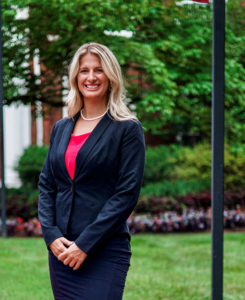
Have you ever found yourself mistaking the song that was playing because the notes were too similar to another song? As a musician, your music is your own unique piece of art, but how unique is a song really? There are only a limited amount of notes at the disposal of artists and they can only be used in so many ways to harmonize with one another. Although lyrics and overall melodies in songs change, sometimes certain snippets of tunes are reused over and over by different artists and these snippets can sound familiar to another song you’ve already heard.
In recent years, more and more music artists have been hit with lawsuits of copyright infringement. Some notable mentions include Queen & David Bowie’s Under Pressure vs. Vanilla Ice’s Ice Ice Baby; Miley Cyrus’ Flowers vs. Bruno Mars’ When I Was Your Man; or just as this time, Marvin Gaye’s Got to Give it Up vs. Robin Thicke’s Blurred Lines. Notably, a case just reached its final decision between two iconic singers, the romance singer Ed Sheeran and the soul R&B singer Marvin Gaye.
In 1973, Ed Townsend and Marvin Gaye co-wrote the song Let’s Get It On and was one of Gaye’s famous hits. That same year, Townsend copyrighted and registered the song with the United States Patent and Trademark Office. He copyrighted the song by submitting the song’s melody, harmony, rhythm and lyrics – otherwise known as the “Deposit Copy.” In 2014, Ed Sheeran and Amy Wadge co-wrote the familiar romance song Thinking Out Loud. Thinking Out Loud won Song of the Year and Best Pop Solo Performance at the Grammy Awards in 2016 and was the most-streamed song for a significant amount of time.
In 2017, the Estate of Townsend brought a copyright infringement suit against Sheeran and various companies that licensed and distributed Thinking Out Loud. The allegation against the famous popstar was that both songs shared similar harmonies, drums, bass lines and tempos. Specifically, the alleged infringements elements referred to a four-chord progression that is paired with a common harmonic melody. The district court found in favor of Sheeran, ruling that because the songs are not substantially similar when looked at its entire composition, it cannot be inferred that Sheeran infringed on Let’s Get It On’s copyright. The U.S. Court of Appeals for the Second Circuit agreed, and, on November 1st, 2024, the Court agreed with the district court’s ruling and rejected the Estate’s arguments for copyright infringement citing the Copyright Act of 1909.
The Copyright Act of 1909 protects only musical compensations that are defined in the sheet music deposited with the Copyright Office. Furthermore, any audio recordings or other material elements of the songs are irrelevant for copyright purposes. Individuals involved in these types of copyright infringement cases must not only take into account legal principles, but also take a close look at analyzing the similarities between the composition of the songs. But how does one decide whether one song is too like another exactly? Jurors must determine if the songs are ‘substantially similar’ to one another which is a lengthy assessment. This analysis involves using expert testimony to assess if the defendant had access to the original work and if the shared elements between the songs are considered protectable and are not common building blocks in songwriting.
Copyright infringement in the arts can create problematic issues for people wishing to publish new songs. Since there are only a set number of musical notes in the scale that can be played and only a certain number of combinations of notes sound appealing to the ear, it seems reasonable to assume that, as more artists create music over the years, the likelihood of infringement with other songs will increase. With new technologies like YouTube enabling musicians to publish songs at a lower barrier to entry, the rate at which music is created by artists will only continue to increase. Within these combinations of notes and the increasing output of combinations due to technological advancement, copyright issues will likely increase in frequency as the years progress. Something will need to be done in the future to prevent the stifling of artistic pursuit. If this current system remains, then artists will be incentivized to not produce as much new music, fearing legal consequences, and the rest of us will not have as much new music to listen to.
For more information: https://www.reuters.com/legal/us-jury-sides-with-ed-sheeran-lets-get-it-on-copyright-trial-2023-05-04/
For help with your small business’s intellectual property needs, contact the Elon Law Small Business Clinic at businessclinic@elon.edu










 vs.
vs. 